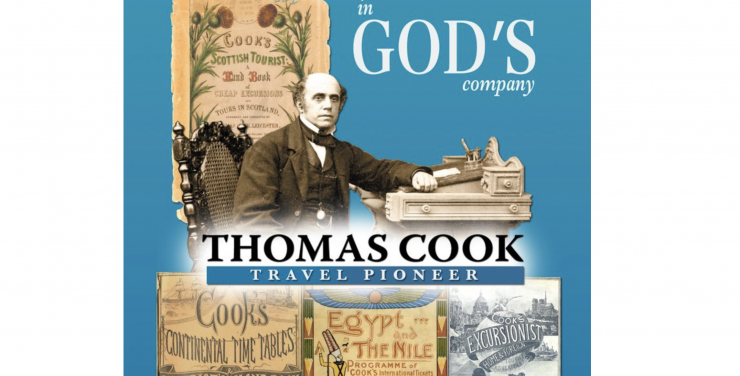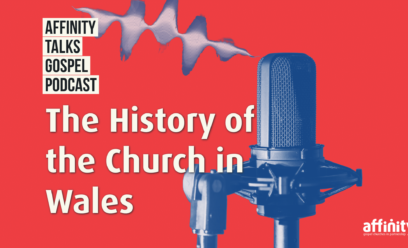In God’s Company: Christian Giants of Business

The latest issue of Affinity’s Social Issues Bulletin is out now. It is free to download (as are all previous editions). In one of the current articles Norman Wells looks at a recent work by Peter Lupson that tells the fascinating stories of Christians who lived out their faith as leaders in the cut-and-thrust world of business:
In God’s Company: Christian Giants of Business, Peter Lupson,
Day One, 191pp, (2019), £8.00
Biographies of pastors, preachers and missionaries are legion, but far less attention has been devoted by Christian publishers to those who fulfil their Christian calling in other spheres, not least in the world of business. This book, focusing on seven men who sought to apply the principles of Scripture to their working lives and live as faithful stewards of the gifts, opportunities and resources entrusted to them, is therefore particularly welcome.
Former schoolteacher and examiner Peter Lupson tells the stories of seven “giants of business”: William Colgate, Thomas Cook, Henry Crowell, William Hartley, Henry Heinz, James Kraft and Anthony Rossi.
Each of them – world leaders in their field – built empires with billions but did so with absolute integrity, caring about the quality of their products, service to their customers and the treatment of their employees. (p.11)
The biographical accounts contained in this volume relate how the Lord Jesus Christ inspired and sustained each of them in the face of scepticism and ridicule, bitter opposition and, in some cases, personal tragedy. Several features stand out that are common to the experience of all seven to varying degrees.
Providence
Again and again, apparently small events and passing remarks proved pivotal and of great significance in the life stories of these men. For example, William Cook traced the origins of his travel business to a thought that “flashed through his brain” as he made a journey by train from Leicester to Loughborough to attend a temperance meeting. A few years later the financial pressures he experienced in his printing business were to prove a gateway to the expansion of his fledgling travel enterprise. After Scottish railway companies ceased to co-operate with Cook, following “the leadings of Providence”, he arranged tours to Switzerland and the closure of the Scottish door opened an even wider one in continental Europe.
Or to take another example, William Hartley only began making jam when the company supplying jam to his wholesale grocery business became unreliable. What began as a sideline became so successful that before long demand exceeded supply and William gave up his wholesale business to concentrate solely on jam making.
Honesty and integrity
Shortly after William Colgate’s first business venture had collapsed, he received some advice from a canal boat captain that never left him: “Be a good man; give your heart to Christ; give the Lord all that belongs to him of every dollar you earn; make an honest soap; give a full pound; and I am certain you will be a prosperous and rich man.” (p.17) When the Colgate Company was formed in 1806 it was initially a one-man operation, but rapidly expanded as it gained a reputation for honesty and excellent customer service.
Henry Heinz practised two mottoes he coined: “To do a common thing uncommonly well brings success”, and “Quality is to a product what character is to a man” (p.119). It was the quality of Heinz’s product that enabled his company to grow from a small, local operation to one that began to make its mark nationally. Heinz stated: “The ruling principle of our business must be to secure the permanent satisfaction of the customer and the full confidence of the trade.” (p.121) After his business crashed and he was made bankrupt, Heinz was deserted by his partners and a smear campaign was launched against him. But he believed he had a moral obligation to pay his debts even when he was not legally bound to do so.
Thomas Cook was not motivated by profit in his travel business. Persuaded that foreign travel could break down distrust between nations as people of different nationalities met each other, he viewed his work as “a mission of goodwill and universal brotherhood” (p.53).
And we learn that William Hartley was not driven by personal ambition, but considered the purpose of his life to “serve the Lord every day to the best of my ability” (p.91). Similarly, James Kraft stated: “I would rather be a layman in the North Shore Baptist Church than to head up the largest corporation in America. My first job is to serve Jesus.” (p.143) Like all the other men featured in this book, he attributed his business success to God’s guidance in answer to prayer.
Care for employees
Several references are made to the consideration that these giants of business showed towards their employees. William Hartley stands out as a particular exemplar. He employed a doctor and nurse to provide free medical care and personally financed a pension fund for his employees. He also built a garden village alongside the factory to create a pleasant and healthy living environment for his workforce.
Hartley believed that he had a moral obligation to share his wealth with his employees. He paid fair and generous wages with rewards for exceptional service. He regarded his staff as equal partners in a shared enterprise and introduced a profit-sharing scheme with profits distributed according to individual performance. He also set up a benevolent fund for employees who suffered hardship, though he refrained from providing help with debts incurred through drink or gambling.
Philanthropy
Henry Heinz counselled: “Make all you can honestly; give all you can wisely”, (p.138) and James Kraft testified: “The only investment I ever made which has paid consistently increasing dividends is the money I have given to the Lord.” (p.151)
Space forbids a full catalogue of the philanthropic endeavours of Messrs Colgate, Cook, Crowell, Hartley, Heinz, Kraft and Rossi. In several instances it is noted that as their wealth grew, so too did the proportion of their income that they devoted to worthy causes.
William Colgate, for example, formed a society to provide free Bibles for the poor and subsequently played a key role in the formation of the American Bible Society and served on its board. While on his travels, Thomas Cook was distressed by the extreme poverty he witnessed on the Isle of Iona. In response he raised money to buy 24 boats, equipped with nets and tackle, to enable the islanders to make a living from fishing.
We learn that in later life Henry Crowell, founder of the Quaker Oats Company, devoted at least 65 per cent of his annual income to support missions and missionaries, prison ministries, Bible translations and to provide relief for the poor, widows and orphans. He also provided the Moody Bible Institute with a solid financial base, launched its own radio station and set up the Moody Press.
Anthony Rossi viewed his business as a vehicle to generate income to use in God’s work. In retirement he established the Aurora Foundation to provide funding for educational institutions, Christian missions and numerous charities worldwide. One of the foundation’s projects was the building of Bradenton Missionary Village to provide accommodation for retired missionaries. Rossi also formed the Bible Alliance to provide blind people and prisoners with cassette recordings of the Bible and Christian messages. He declared:
“In Tropicana I had the pleasure of providing orange juice, a product healthful for the physical life. But today, mine is the greater pleasure to be providing that which can bring health to the soul.” (p.189)
William Hartley believed that generosity is not measured by what people have but by what they have left. In addition to funding the Primitive Methodist Chapel Aid Association and the denomination’s theological college, he provided finance for the construction of hospitals, the endowment of beds and medical research. He financed cancer research at Liverpool University and also supported the university’s School of Tropical Medicine, not least because of its benefits for missionary work. The breadth of his interests is reflected in the fact that as well as founding a hospital and building almshouses in his home town of Colne, he also rescued Everton Football Club from financial ruin. In order to discourage an over-reliance on handouts, Hartley sometimes adopted the principle of “challenge offers” whereby he would donate a specified amount towards a stated target on condition that the balance was provided by the collective efforts of others.
Conclusion
In God’s Company by no means presents accounts of unmitigated success; there are plenty of failures, setbacks, struggles and trials along the way. In some cases, the companies founded by these Christian entrepreneurs remained faithful to the principles on which they had been established for many decades. In the centenary year of Colgate and Company, for example, William Colgate’s grandson Richard declared that one thing that had remained constant during the history of the company was “the old-fashioned, honest business methods” established by its founder: “We want to grow. We want to increase. We are all Americans – but we do not wish to grow or increase at the expense of honesty and uprightness and strict business principles.” (p.36)
However, it is sad to read of the tensions that arose between Thomas Cook and his son John, who did not share his father’s outlook and motivation. John was profit-driven and was infuriated that his father gave priority to Christian and philanthropic activities.
In summing up the spirit of this very worthwhile book, we shall leave the last word to William Hartley:
My last word must be that we…followers of Jesus Christ, must carry into our life his spirit and teaching, and that whatever we think Jesus Christ would have done had he been in our place, whether we are employers or employed, whether we are in business or out of business, that we are compelled to do. This is the secret of all true success; the consecration of ourselves and our substance to him who loved us and laid down his life for us. (p.115)
Norman Wells is a graduate of the London Seminary and has served as director of the Family Education Trust since 2004. He is also a director of the Coalition for Marriage.
(This article was originally published in the Affinity Social Issues Bulletin for February 2020. The whole edition can be found at www.affinity.org.uk)
Related articles
Stay connected with our monthly update
Sign up to receive the latest news from Affinity and our members, delivered straight to your inbox once a month.



